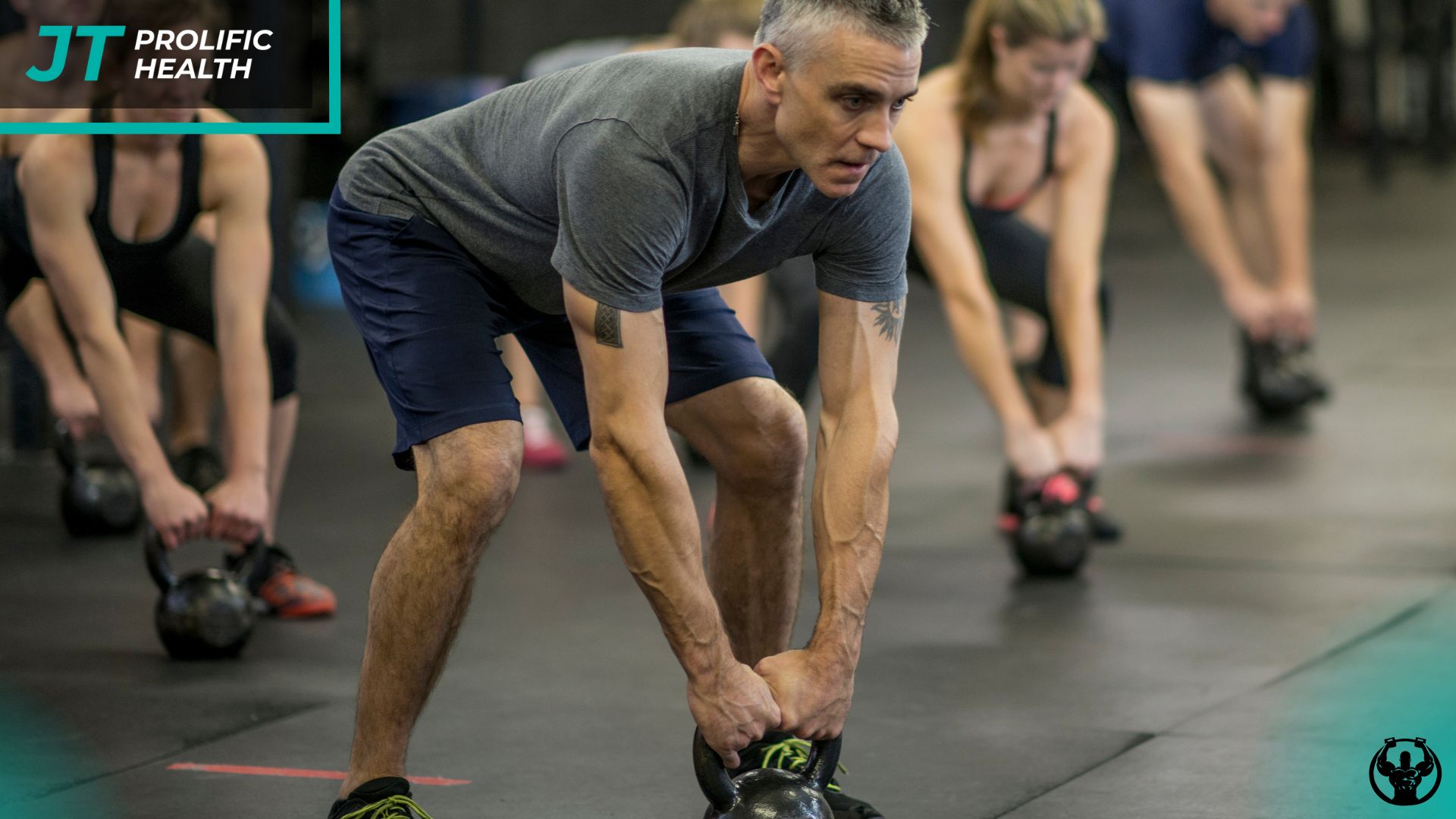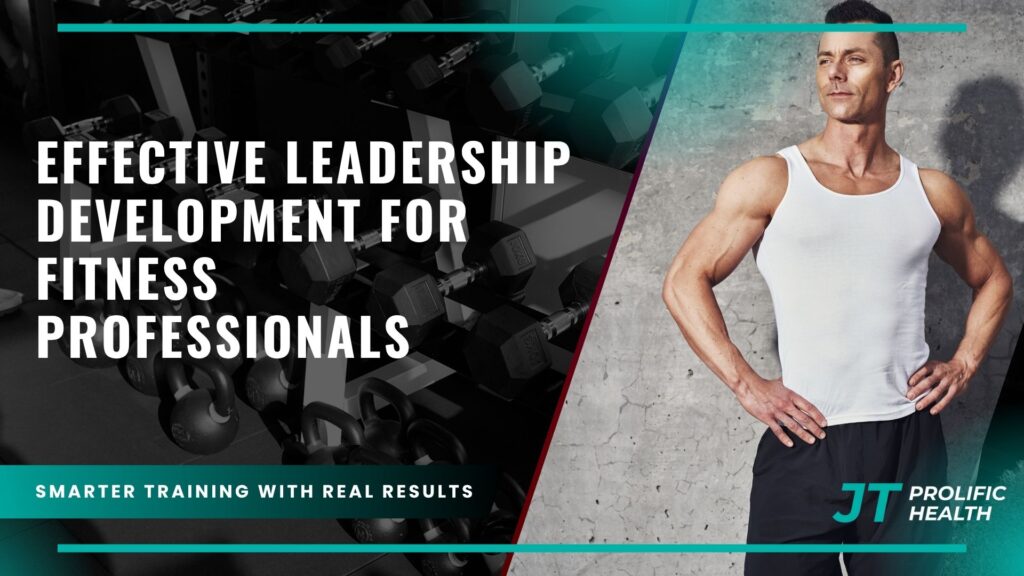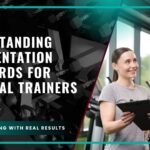The fitness industry has evolved dramatically over the past decade, transforming from a simple service-based model to a sophisticated ecosystem that demands exceptional leadership skills from its professionals. Today’s fitness professionals are no longer just exercise instructors or workout supervisors; they are leaders, mentors, coaches, and business strategists who must navigate complex interpersonal dynamics while delivering measurable results for their clients.
Leadership development in the fitness industry represents a critical component of professional growth that extends far beyond technical expertise. While understanding anatomy, exercise physiology, and program design remains fundamental, the ability to inspire, motivate, and guide others toward their goals has become the distinguishing factor between average trainers and exceptional fitness leaders. This transformation reflects the industry’s maturation and the increasing recognition that successful fitness professionals must possess a comprehensive skill set that encompasses both technical competency and emotional intelligence.
The modern fitness landscape presents unique leadership challenges that require specialized development approaches. Fitness professionals must learn to adapt their leadership style to diverse client populations, manage expectations effectively, build sustainable motivation systems, and create environments where clients feel empowered to pursue their health and wellness goals. These responsibilities extend beyond individual training sessions to encompass program development, team coordination, business management, and community building.
Understanding the nuances of leadership development within the fitness context requires recognizing that this industry operates on deeply personal levels. Fitness professionals work with clients during vulnerable moments, helping them overcome physical limitations, mental barriers, and lifestyle challenges. This intimate aspect of the profession demands a leadership approach that balances professional expertise with genuine empathy, creating trust-based relationships that facilitate long-term success.
The investment in leadership development for fitness professionals yields benefits that extend throughout the entire industry ecosystem. Well-developed leaders create positive training environments, improve client retention rates, enhance team dynamics, and contribute to the overall professionalization of the fitness industry. They become role models who inspire other professionals to elevate their own standards and practices.
Key Takeaways
For additional context, see this comprehensive guide.
- Comprehensive Skill Development: Effective leadership development for fitness professionals encompasses emotional intelligence, communication mastery, conflict resolution, and strategic thinking alongside technical fitness knowledge.
- Client-Centered Leadership: Successful fitness leaders prioritize understanding individual client needs, motivations, and barriers while adapting their leadership approach to maximize engagement and results.
- Continuous Learning Mindset: Leadership development requires ongoing education, self-reflection, and skill refinement to stay current with industry trends and evolving client expectations.
- Team Building Capabilities: Modern fitness professionals must develop skills in team leadership, collaboration, and creating supportive environments that benefit both colleagues and clients.
- Business Acumen Integration: Leadership development must include business management skills, including client relationship management, program development, and strategic planning.
- Authentic Leadership Style: Developing a genuine, authentic leadership approach that aligns with personal values while meeting professional objectives creates sustainable success in the fitness industry.
- Measurable Impact Focus: Effective fitness leaders learn to set clear goals, track progress, and demonstrate tangible results for both individual clients and organizational objectives.
- Professional Network Development: Building strong professional relationships within the fitness community enhances leadership capabilities and creates opportunities for continued growth and collaboration.
Understanding Leadership Fundamentals in Fitness


For additional context, see detailed information on this topic.
Leadership development for fitness professionals begins with understanding the unique context in which they operate. Unlike traditional business leadership roles, fitness professionals must master the art of motivating individuals who may be struggling with self-confidence, physical limitations, or past failures in their health journey. This requires developing a leadership style that combines technical expertise with exceptional interpersonal skills.
The foundation of effective fitness leadership rests on building genuine relationships with clients and colleagues. This relationship-building process involves active listening, empathetic communication, and the ability to understand each individual’s unique circumstances and motivations. Successful fitness leaders learn to recognize that every client brings different experiences, fears, and aspirations to their fitness journey, requiring personalized leadership approaches.
Emotional intelligence serves as a cornerstone of fitness leadership development. Professionals must learn to read non-verbal cues, manage their own emotional responses during challenging situations, and create emotionally safe environments where clients feel comfortable pushing their boundaries. This emotional awareness extends to understanding when to provide encouragement, when to challenge clients, and when to offer support during setbacks.
Communication mastery represents another fundamental aspect of leadership development in the fitness industry. Effective fitness leaders must translate complex physiological concepts into understandable guidance, provide constructive feedback that motivates rather than discourages, and maintain clear, consistent messaging throughout their interactions. This communication skill set includes both verbal and non-verbal elements, as body language and tone often convey more than words alone.
Goal setting and progress tracking form essential components of fitness leadership that require systematic development. Leaders must learn to help clients establish realistic, achievable goals while maintaining motivation for long-term success. This process involves understanding behavior change psychology, creating accountability systems, and celebrating milestones that reinforce positive habits and attitudes.
Developing Coaching Leadership Skills


Coaching leadership skills represent a specialized subset of leadership development that focuses specifically on guiding individuals through transformative experiences. For fitness professionals, these skills encompass the ability to assess individual needs, design personalized development plans, and provide ongoing support throughout the client journey. The development of coaching leadership skills requires understanding the psychology of behavior change and motivation.
Effective coaching leadership begins with mastering the art of asking powerful questions that help clients discover their own motivations and solutions. Rather than simply providing instructions or commands, skilled fitness leaders learn to guide clients through self-discovery processes that create deeper commitment to their goals. This approach requires developing questioning techniques that uncover underlying beliefs, fears, and desires that influence behavior patterns.
The coaching aspect of fitness leadership involves creating structured learning experiences that build both competence and confidence. This requires understanding how to break complex movements or concepts into manageable components, provide appropriate challenges that stretch abilities without overwhelming, and create safe environments for experimentation and growth. Successful fitness leaders learn to balance support with challenge, ensuring clients feel both comfortable and motivated to progress.
Feedback delivery represents a critical coaching leadership skill that requires careful development. Effective fitness leaders learn to provide feedback that is specific, timely, and constructive, focusing on behaviors and outcomes rather than personal characteristics. This skill involves understanding how different individuals respond to various feedback styles and adapting approaches accordingly. When working with clients who may be considering professional guidance for their fitness journey, the ability to provide encouraging yet honest feedback becomes particularly important.
Accountability systems form another essential component of coaching leadership skills. Fitness professionals must learn to create structures that support client commitment while respecting individual autonomy and preferences. This involves developing follow-up systems, progress tracking methods, and motivational strategies that maintain engagement between sessions. Effective leaders understand that accountability should feel supportive rather than punitive, encouraging continued effort rather than creating anxiety or fear.
Conflict resolution and challenging conversation management represent advanced coaching leadership skills that become increasingly important as professionals advance in their careers. These skills involve learning to address performance issues, manage unrealistic expectations, and navigate difficult situations while maintaining positive relationships. The development of these skills requires practice, mentorship, and often formal training in communication and conflict resolution techniques.
Building Emotional Intelligence and Empathy
Emotional intelligence development represents one of the most crucial aspects of leadership growth for fitness professionals. This multifaceted skill set encompasses self-awareness, self-regulation, social awareness, and relationship management. For fitness professionals, developing emotional intelligence means learning to recognize and manage their own emotional responses while accurately reading and responding to client emotions and needs.
Self-awareness forms the foundation of emotional intelligence development. Fitness professionals must learn to recognize their own emotional triggers, biases, and communication patterns that may impact their effectiveness as leaders. This self-awareness extends to understanding personal strengths and limitations, allowing for more authentic and effective client interactions. Regular self-reflection, feedback seeking, and potentially working with mentors or coaches can accelerate this aspect of development.
Empathy development requires fitness professionals to genuinely understand and connect with client experiences, even when those experiences differ significantly from their own. This involves learning to suspend judgment, ask clarifying questions, and validate client feelings while maintaining professional boundaries. Empathy in the fitness context often means understanding the courage required for clients to begin or continue their fitness journey, particularly for those who may feel intimidated or self-conscious in fitness environments.
Social awareness skills help fitness professionals read group dynamics, understand cultural differences, and adapt their leadership approach to diverse populations. This awareness includes recognizing when clients are struggling with motivation, experiencing physical discomfort, or dealing with external stressors that may impact their training. Developing these skills often involves studying body language, vocal patterns, and behavioral cues that indicate emotional states.
Creating Effective Training and Development Programs


The creation of comprehensive training and development programs represents a advanced leadership skill that many fitness professionals must master as they progress in their careers. These programs extend beyond individual client sessions to encompass team training, continuing education initiatives, and systematic skill development for other fitness professionals. Effective program creation requires understanding learning principles, adult education theory, and systematic curriculum development.
Needs assessment forms the critical first step in developing effective training programs. This process involves identifying skill gaps, understanding learning objectives, and determining the most appropriate delivery methods for different types of content. For fitness professionals developing leadership skills, this might include assessing communication abilities, technical knowledge gaps, or business management competencies among team members.
Program structure and sequencing require careful consideration of how skills build upon one another and how to create logical progression paths for learners. Effective fitness leaders learn to design programs that begin with foundational concepts and gradually introduce more complex skills and applications. This progression must account for different learning styles, experience levels, and professional goals among participants.
Practical application opportunities represent essential components of effective training programs. Fitness professionals must learn to create safe environments where learners can practice new skills, receive feedback, and refine their approaches. This might involve role-playing exercises, supervised client interactions, or structured mentorship programs that provide real-world application opportunities.
Assessment and evaluation methods ensure that training programs achieve their intended outcomes and provide valuable feedback for continuous improvement. Effective fitness leaders develop both formal and informal assessment strategies that measure skill development, knowledge retention, and practical application abilities. These assessment methods should align with program objectives and provide actionable feedback for both learners and program developers.
The integration of technology and modern learning tools enhances the effectiveness of training and development programs. Fitness professionals must stay current with digital learning platforms, virtual training capabilities, and technology-enhanced assessment tools. This technological integration can expand program reach, improve engagement, and provide more flexible learning options for participants. Understanding how to effectively utilize these tools requires ongoing education and adaptation to emerging technologies.
Building and Leading High-Performance Teams
Team leadership represents one of the most challenging and rewarding aspects of leadership development for fitness professionals. As the industry continues to evolve toward more collaborative and integrated service models, the ability to build and lead high-performance teams becomes increasingly valuable. This skill set encompasses team formation, culture development, performance management, and conflict resolution within fitness environments.
Team formation strategies require understanding how to identify complementary skills, personalities, and working styles that contribute to overall team effectiveness. Fitness professionals must learn to assess individual strengths and development areas while considering how different team members can support and enhance each other’s capabilities. This process involves strategic thinking about team composition, role definition, and resource allocation.
Culture development within fitness teams requires intentional effort to establish shared values, communication norms, and performance standards. Effective fitness leaders learn to create environments where team members feel valued, supported, and motivated to contribute their best efforts. This cultural development process involves regular team meetings, shared goal setting, recognition systems, and collaborative problem-solving approaches.
Performance management skills enable fitness leaders to maintain high standards while supporting individual team member growth and development. This involves setting clear expectations, providing regular feedback, conducting performance reviews, and creating development plans that align individual goals with team objectives. For professionals who understand the importance of consistent training approaches, applying similar consistency principles to team management becomes natural.
Delegation and empowerment represent advanced team leadership skills that require balancing oversight with autonomy. Effective fitness leaders learn to assign responsibilities based on individual capabilities and growth opportunities while maintaining accountability for overall team performance. This delegation process involves clear communication of expectations, resource provision, and ongoing support without micromanagement.
Team communication systems ensure that information flows effectively throughout the organization and that team members remain aligned with goals and priorities. Fitness leaders must develop both formal and informal communication channels that facilitate collaboration, knowledge sharing, and problem-solving. These systems should accommodate different communication preferences and work schedules while maintaining consistency and clarity.
Conflict resolution within fitness teams requires specialized skills that account for the personal nature of fitness services and the diverse personalities typically found in the industry. Leaders must learn to address disagreements constructively, mediate disputes fairly, and create solutions that strengthen rather than weaken team relationships. This often involves understanding different conflict styles, facilitating difficult conversations, and finding win-win solutions to challenging situations.
Strategic Thinking and Business Leadership
Strategic thinking and business leadership skills distinguish exceptional fitness professionals from those who remain focused solely on service delivery. These advanced leadership capabilities involve understanding market dynamics, developing long-term vision, making strategic decisions, and leading organizational change within fitness businesses or departments. The development of these skills requires expanding perspective beyond immediate client needs to encompass broader industry trends and business considerations.
Market analysis and trend identification enable fitness leaders to anticipate industry changes and position their organizations for future success. This involves staying informed about emerging fitness trends, technological innovations, demographic shifts, and regulatory changes that may impact service delivery. Effective leaders learn to interpret this information and make strategic adjustments to programs, services, and business models accordingly.
Vision development and communication represent fundamental strategic leadership skills that inspire and align team efforts toward common goals. Fitness leaders must learn to articulate compelling visions for their organizations or departments while connecting these visions to individual team member aspirations and client needs. This vision communication process requires storytelling abilities, persuasive communication skills, and the ability to maintain enthusiasm and commitment over extended periods.
Financial management and business acumen become increasingly important as fitness professionals advance into leadership roles. This includes understanding revenue models, cost management, profitability analysis, and investment decisions that impact organizational sustainability and growth. Leaders must learn to balance financial considerations with service quality and team member satisfaction, making decisions that support long-term success rather than short-term gains.
Innovation and change management skills enable fitness leaders to adapt to evolving industry conditions while maintaining organizational stability and team morale. This involves understanding change management principles, communication strategies for change initiatives, and methods for overcoming resistance to new approaches. For fitness professionals working with clients who may need guidance on preparing for new fitness experiences, these change management skills prove valuable in both client and organizational contexts.
Partnership development and stakeholder management expand leadership influence beyond immediate team boundaries to encompass relationships with other businesses, healthcare providers, community organizations, and industry associations. Effective fitness leaders learn to identify mutually beneficial partnership opportunities, negotiate agreements, and maintain relationships that enhance service delivery and business growth. These partnerships often provide referral sources, continuing education opportunities, and collaborative service delivery models that benefit all parties involved.
At Prolific Health, we understand that leadership development represents a continuous journey rather than a destination. Our approach to developing fitness professionals emphasizes practical application, mentorship, and systematic skill building that prepares leaders for the complex challenges of modern fitness environments. We believe that investing in leadership development benefits not only individual professionals but also the clients they serve and the industry as a whole.
Frequently Asked Questions
What are the most important leadership skills for fitness professionals to develop?
The most critical leadership skills include emotional intelligence, effective communication, coaching abilities, team building, and strategic thinking. These skills enable fitness professionals to inspire clients, manage teams effectively, and adapt to industry changes while maintaining high service standards.
How can fitness professionals develop their coaching leadership skills?
Coaching leadership skills develop through formal education, mentorship programs, practical application with feedback, and continuous learning. Many professionals benefit from understanding when clients need different types of guidance, which helps refine their coaching approach and leadership effectiveness.
What role does emotional intelligence play in fitness leadership?
Emotional intelligence enables fitness leaders to understand and respond appropriately to client emotions, manage their own reactions during challenging situations, and create supportive environments that facilitate positive change. This skill set is essential for building trust and maintaining long-term client relationships.
How do successful fitness leaders handle difficult client situations?
Effective fitness leaders approach difficult situations with empathy, clear communication, and problem-solving focus. They listen actively to understand underlying concerns, address issues directly while maintaining respect, and work collaboratively to find solutions that meet both client needs and professional standards.
What business skills should fitness leaders prioritize?
Essential business skills include financial management, strategic planning, marketing understanding, and operational efficiency. These skills enable fitness leaders to make informed decisions that support both service quality and business sustainability, ensuring long-term success for their organizations and clients.
How can fitness professionals build effective teams?
Team building requires clear communication of expectations, recognition of individual strengths, creation of collaborative environments, and consistent support for team member development. Successful fitness leaders focus on building trust, maintaining open communication, and aligning individual goals with team objectives.
What continuing education opportunities support leadership development?
Leadership development opportunities include formal certification programs, industry conferences, mentorship relationships, peer learning groups, and specialized workshops. Many professionals also benefit from understanding comprehensive service delivery approaches that enhance their leadership effectiveness and client value.
How do fitness leaders measure their leadership effectiveness?
Leadership effectiveness measures include client retention rates, team satisfaction scores, business performance metrics, and feedback from colleagues and supervisors. Regular self-assessment, 360-degree feedback processes, and goal achievement tracking provide valuable insights for continuous improvement and development planning.
Conclusion
Leadership development for fitness professionals represents a multifaceted journey that extends far beyond technical fitness knowledge to encompass emotional intelligence, coaching skills, team management, and strategic thinking capabilities. The investment in these leadership competencies yields significant returns for individual professionals, their clients, and the broader fitness industry through improved service quality, enhanced client outcomes, and elevated professional standards.
The modern fitness landscape demands leaders who can navigate complex interpersonal dynamics while delivering measurable results and building sustainable business models. These leaders must balance technical expertise with exceptional communication abilities, creating environments where clients feel empowered to pursue their health and wellness goals. The development of these capabilities requires intentional effort, ongoing education, and practical application opportunities that reinforce learning and skill refinement.
Success in fitness leadership development depends on recognizing that this journey requires continuous growth and adaptation. Industry trends, client expectations, and business models continue to evolve, requiring leaders who can anticipate changes and position their organizations for future success. This adaptability, combined with strong foundational leadership skills, creates the resilience and effectiveness necessary for long-term career success.
The commitment to leadership development ultimately benefits everyone involved in the fitness ecosystem. Well-developed leaders create positive training environments, improve client retention and satisfaction, enhance team dynamics, and contribute to the overall professionalization of the industry. For those considering different fitness service options, working with skilled fitness leaders provides superior value and more effective support for achieving health and wellness goals.




